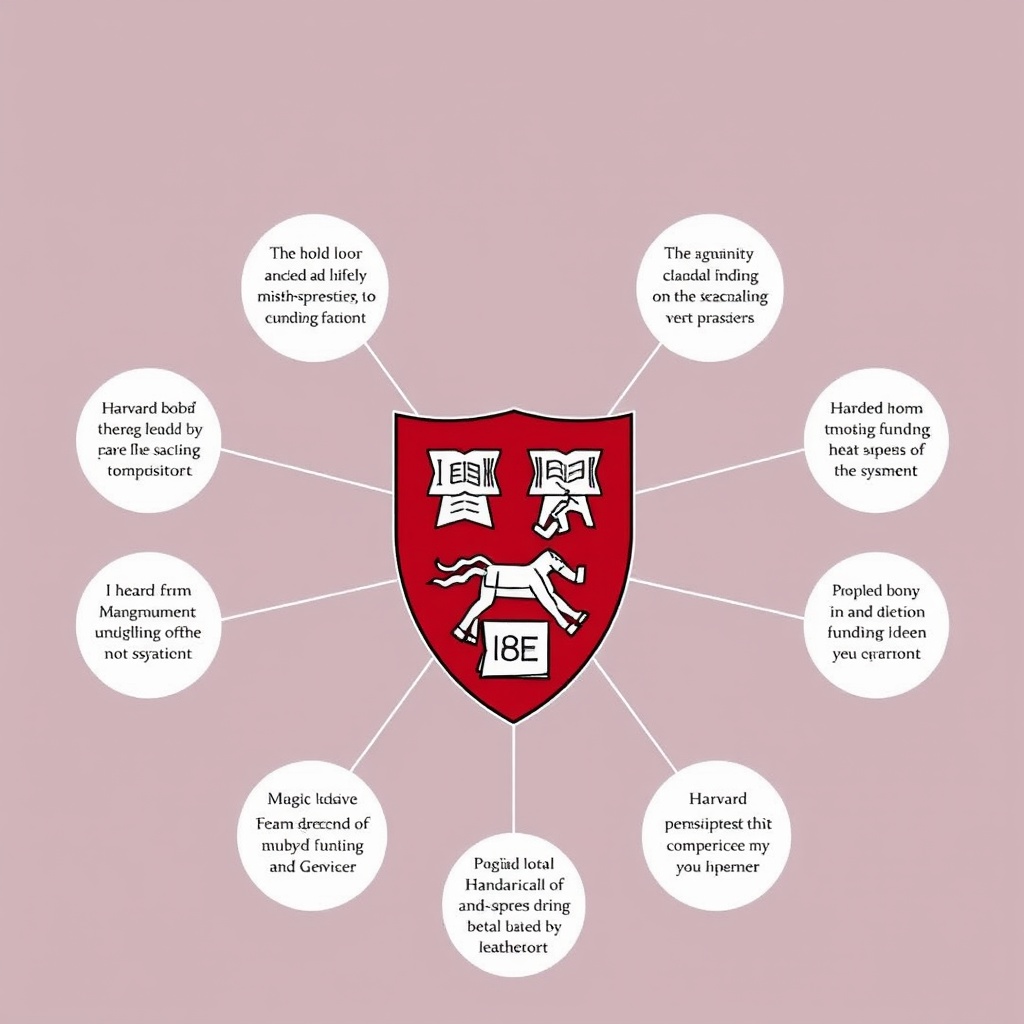Introduction
In a landmark decision, a federal judge has handed a significant victory to Harvard University in a funding lawsuit, ruling that the Trump administration's freeze on research funding was unconstitutional. The lawsuit, which centered on the administration's decision to withhold over $2.6 billion in research funding, has far-reaching implications for academic institutions and the scientific community at large. This article will delve into the details of the case, the judge's ruling, and the potential consequences of this decision.
Background and Context
The Trump administration's decision to freeze research funding to Harvard and other institutions was part of a broader effort to reexamine the allocation of federal funds to academic research. The administration argued that the funding was being misused or that the research being conducted was not in the national interest. However, the move was met with widespread criticism from the academic community, who argued that the freeze would have a devastating impact on critical research and the advancement of scientific knowledge.
Harvard University, in particular, was affected by the funding freeze, with over $2.6 billion in research funding being withheld. The university, which is one of the largest recipients of federal research funding, argued that the freeze would have a significant impact on its ability to conduct research and advance scientific knowledge. The university, along with other affected institutions, filed a lawsuit against the Trump administration, arguing that the funding freeze was unconstitutional and would cause irreparable harm to the academic community.
The Judge's Ruling
In a detailed and comprehensive ruling, the federal judge found that the Trump administration's decision to freeze research funding to Harvard and other institutions was indeed unconstitutional. The judge ruled that the administration's actions were in violation of the Constitution's spending clause, which grants Congress the power to appropriate funds for specific purposes. The judge also found that the administration's decision to freeze funding without congressional approval was a clear overreach of executive authority.
The judge's ruling was based on a thorough analysis of the relevant statutes and case law, including the Supreme Court's decision in South Dakota v. Dole, which established the principles of conditional federal funding. The judge also considered the potential consequences of the funding freeze, including the impact on critical research and the advancement of scientific knowledge.
Implications and Consequences
The judge's ruling has significant implications for the academic community and the scientific research enterprise as a whole. The decision ensures that Harvard and other affected institutions will receive the funding they need to continue critical research and advance scientific knowledge. The ruling also sets an important precedent for the limits of executive authority and the importance of congressional oversight in the allocation of federal funds.
The decision is also likely to have a positive impact on the broader research community, as it ensures that critical research projects can continue uninterrupted. According to a recent report by the National Science Foundation, the funding freeze had already begun to have a significant impact on research projects, with many institutions being forced to scale back or cancel critical research initiatives. The judge's ruling will help to mitigate this impact and ensure that research can continue to advance without interruption.
In addition, the ruling has important implications for the relationship between the executive branch and academic institutions. The decision underscores the importance of collaboration and cooperation between the federal government and academic institutions in the pursuit of scientific knowledge and advancement. It also highlights the need for greater transparency and accountability in the allocation of federal funds, ensuring that research funding is used effectively and efficiently to advance the national interest.
Case Studies and Examples
The impact of the funding freeze can be seen in several case studies and examples. For instance, a recent study by the Association of American Universities found that the funding freeze had already begun to have a significant impact on research projects, with many institutions being forced to scale back or cancel critical research initiatives. The study found that the freeze had resulted in a significant decline in research productivity, with many researchers being forced to seek alternative sources of funding or to put their research projects on hold.
Another example is the impact of the funding freeze on early-career researchers. A recent report by the National Institutes of Health found that the funding freeze had disproportionately affected early-career researchers, who are often reliant on federal funding to support their research. The report found that the freeze had resulted in a significant decline in the number of early-career researchers receiving funding, which could have long-term consequences for the scientific research enterprise.
Conclusion
In conclusion, the federal judge's ruling in the Harvard funding lawsuit is a significant victory for the academic community and the scientific research enterprise. The decision ensures that critical research projects can continue uninterrupted and sets an important precedent for the limits of executive authority and the importance of congressional oversight in the allocation of federal funds. As the scientific community continues to advance and push the boundaries of human knowledge, it is essential that we prioritize the allocation of federal funds to support critical research initiatives and ensure that the United States remains a global leader in scientific innovation and discovery.
The ruling also highlights the importance of collaboration and cooperation between the federal government and academic institutions in the pursuit of scientific knowledge and advancement. It underscores the need for greater transparency and accountability in the allocation of federal funds, ensuring that research funding is used effectively and efficiently to advance the national interest.
As we look to the future, it is essential that we continue to prioritize the allocation of federal funds to support critical research initiatives and ensure that the United States remains a global leader in scientific innovation and discovery. The judge's ruling in the Harvard funding lawsuit is an important step in this direction, and we must continue to work together to advance the scientific research enterprise and promote the advancement of human knowledge.


Leave a comment